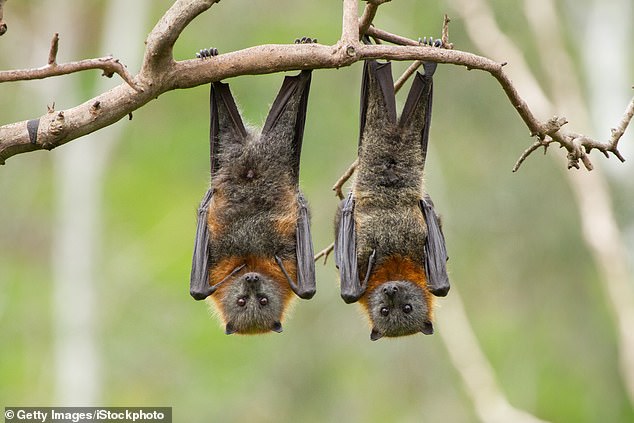A man is in a critical condition after contracting New South Wales’ first confirmed case of Australian bat lyssavirus, prompting a warning from authorities.
The man, in his 50s, is from Northern NSW and has been admitted to hospital in a critical condition.
NSW Health has urged the public to avoid touching or handling bats, which can spread the potentially-fatal virus.
Keira Glasgow, a Director in Health Protection at NSW Health said lyssavirus is transmitted from infected bats to humans when virus in bat saliva enters the body through a bat bite or scratch.
‘This is a very tragic situation. The man had been bitten by a bat several months ago and received treatment following the injury,’ Ms Glasgow said.
‘Further investigation is underway to understand whether other exposures or factors played a role in his illness.
‘We know 118 people required medical assessment after being bitten or scratched by bats in 2024, but this is the first confirmed case of the virus in NSW, and the fourth case in Australia.’
She said it was ‘incredibly rare’ for the virus to transmit to humans, but once symptoms of the virus begin ‘there is no effective treatment’.

Australian bat Lyssavirus can, on rare occasions, spread from bats to humans through physical contact (pictured are two Australian fruit bats)

Medical professionals are urging Australians not to handle bats after a confirmed case of Lyssavirus saw a man in his 50s rushed to hospital (above, stock of man in hospital)
Ms Glasgow urged people to assume that any bat in Australia could carry lyssavirus, and said this is why only trained, protected and vaccinated wildlife handlers should interact with bats.
‘If you are bitten or scratched by a bat, urgent medical assessment is crucial,’ she said.
‘You will need to wash the wound thoroughly for 15 minutes right away with soap and water and apply an antiseptic with anti-virus action, such as betadine, and allow it to dry.
‘You will then require treatment with rabies immunoglobulin and rabies vaccine.’
Australian bat lyssavirus is a close relative to the rabies virus.
The virus has been found in species of flying foxes, fruit bats and insect-eating microbats.
People who come into close contact with bats due to work, volunteering, or recreation are most at risk of contracting the virus.
Bat handlers and carers, vets, wildlife officers, cave explorers and power-line workers are all advised to be vaccinated against the disease.
The virus can be diagnosed through the testing of blood, spinal fluid, skin, or nervous tissues.
‘If you see a bat in distress, injured or trapped on the ground, do not try to rescue it,’ a NSW Health website read.
‘Instead, contact trained experts WIRES on 1300 094 737 or your local wildlife rescue group.’





